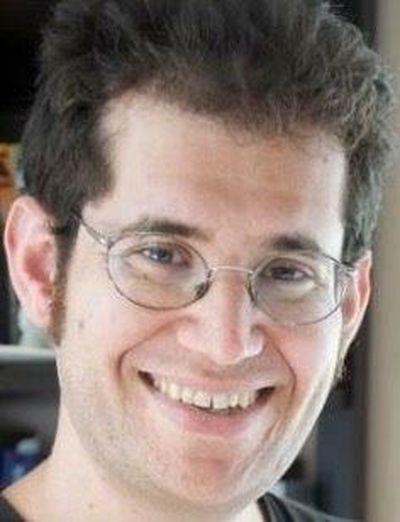Faith and Values: Plenty of constructive ways for Jews to express their anger

Q: It seems to me that if anyone has a right and a reason for protesting and marching in the streets (it) is the Jewish people, considering all the horrible things done to and said about them, and yet it doesn’t happen here in the U.S. How do Jews manage anger and indignation?
A: We tweet! Just kidding. Sort of.
Actually, marching in the streets is something plenty of Jews did during the civil rights movement. Jews have also marched more recently for countless other causes, including LGBT rights, refugees, the environment, health care, and racial justice, to name just a few. Many Jews have marched in support of the state of Israel; some have marched in protest of Israeli policies and actions. Jews are as capable of righteous anger as any other people group. Exhibit A: Even my septuagenarian mother participated in the Women’s March in D.C. back in January.
I do think some kinds of anger, especially those that are more personal and less political, may be difficult to express for some Jews. Mourning family members lost in the Holocaust is a relatively straightforward prospect that many communities ritualize in annual remembrance services. It’s harder to know what to do with, or sometimes even recognize, the anger that can sit in a family for generations due to the atrocities its members, and Jews as a collective, have suffered.
Some children of Holocaust survivors, angry or not, may feel disinclined to put themselves in harm’s way, which is what marching in the streets entails. They may believe that too many horrors have already been visited upon their family, so there’s no need to seek out more (e.g., being hurt or killed while protesting neo-Nazis, as Heather Heyer was in Charlottesville). It’s also likely that some survivors, in light of their own horrendous ordeals, have transmitted to their children the principle that even tikkun olam (the Jewish value of working to repair a broken world) is secondary to personal and family safety.
That said, some survivors’ kids may be especially likely to, say, travel to Standing Rock and put their bodies on the front lines. Their parents’ experience has taught them that injustice cannot be tolerated, no matter who is experiencing it, and tikkun olam has to start with them, precisely because of what their family has endured. As always, we Jews are not monolithic or even close to uniform in our attitudes regarding public protest.
Personally, I have found Buddhist meditation and general principles of mindfulness to be helpful in my ongoing struggle to find healthy outlets for my anger, whatever its psychological roots may be. (I’m the grandson of Holocaust survivors, so make of that what you will.) Religious Jews may learn how to work with their anger in constructive ways by studying Torah, Talmud and other key Jewish writings. The weekly practice of worship in a communal setting may also aid Jews greatly in managing their anger.
But to underscore my main point: Jews aren’t sitting around twiddling their thumbs while neo-Nazis infest America and the president endlessly repeats a slogan – “America First” – with anti-Semitic origins. Some are pressuring their House and Senate representatives to act; some are organizing local protest and solidarity events. And some are speaking at conferences on hate, like Rabbi Francine Roston, whose presentation “Responding to Hate & Cyber-Terrorism: Lessons from Whitefish, Montana” was the closing keynote address at Gonzaga’s recent International Conference on Hate Studies. If there’s one thing Judaism’s emphasis on justice and repairing the world commands us to do, it’s to convert our “anger and indignation” into effective, thoughtful action.
A native of Detroit, Neal Schindler has lived in the Pacific Northwest for about 15 years. He has held staff positions at Seattle Weekly and the Seattle Times and was a freelance writer for Jew-ish.com from 2007 to 2011. Schindler was raised in a Reconstructionist Jewish congregation and is now a member of Spokane’s Reform congregation, Emanu-El. He is the director of Spokane Area Jewish Family Services and also works as a copy editor at The Spokesman-Review. His interests include movies, Scrabble and indie rock. He lives with his wife, baby son and two cats in West Central Spokane.